5 Symptoms of a Bad PCV Valve (and Replacement Cost)
Is your car stalling, oil leaking, and check engine light on? A malfunctioning PCV valve could be to blame. Learn to recognize the symptoms of a faulty positive crankcase ventilation valve, a key emissions system component.
If the cause of your car trouble does end up being a bad PCV valve, consider yourself lucky. As far as replacement costs go, this is one of the cheapest parts to replace and most individuals can do so on their own.
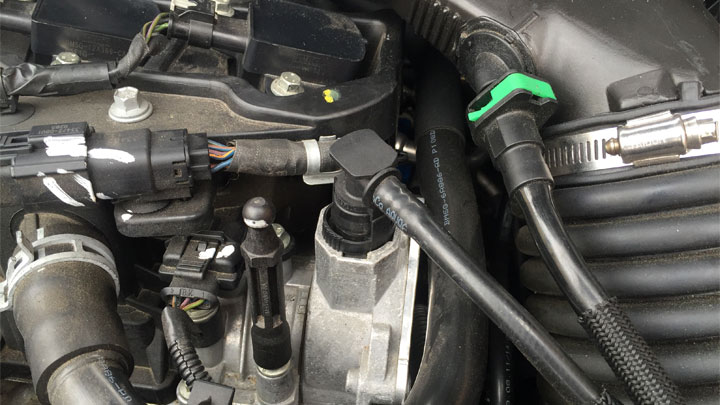
See Also: Symptoms of a Bad EGR Valve
Common Bad PCV Valve Symptoms
For your car to have the cleanest emissions possible, you need to have a fully functional PCV valve. Unfortunately, PCV valves can go bad after they have been used for several years.
You need to be able to recognize the symptoms of a bad PCV valve in your vehicle if you are going to replace it with a new one. Most of these symptoms are not too hard to recognize.
Just make sure you don’t ignore these symptoms because your engine could end up with irreversible damage if you do. Here are 5 of the most common signs of a faulty PCV valve.
Related: How an Oil Catch Can Works
#1 – Oil Leakage
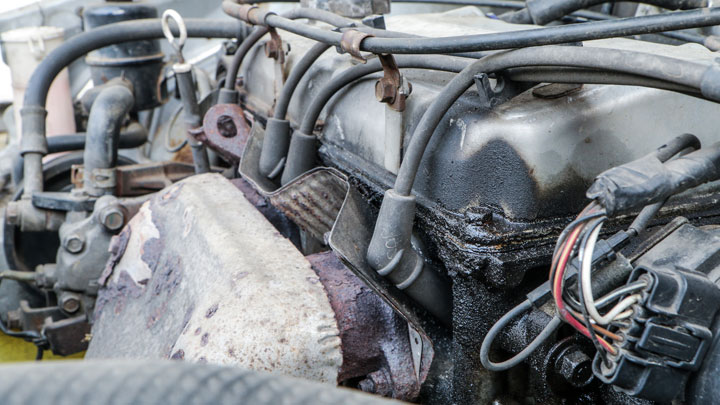
A functional PCV valve will work to lower the pressure of the crankcase. But when the PCV valve goes bad, it may not be able to get out of the closed position because it is stuck. This could happen if the valve gets clogged or just wears out over time.
In any event, the pressure of the crankcase will build when this happens. The more pressure that builds, the higher the chance of an oil leak occurring.
The seals and gaskets are where you can expect these leaks to occur. Oil in your intake manifold or throttle body are another possibility.
Sometimes the air filter assembly has oil inside of it due to a non-functioning PCV valve. Although rare, oil can makes its way through the exhaust.
Related: Valve Cover Gasket Replacement Cost
#2 – Check Engine Light
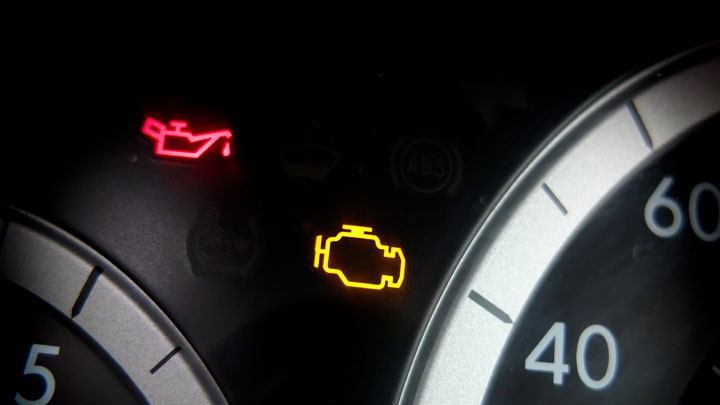
The engine control unit is in constant communication with the oxygen sensors of your engine. When a PCV valve goes bad, it normally causes either too much fuel or too much air to enter the combustion cylinders of the engine.
The sensors will relay this information back to the engine control unit after the air and fuel mixture is ignited. As a result, the Check Engine warning light will be illuminated on the dashboard.
You will need to scan your vehicle for any stored fault codes via an OBD2 scan tool. You may get a code specific to the PCV valve such as P052E or P053A or a more common code such as P0171 or P0174 where the PCV valve may be just one of the causes of the code.
See Also: 3 Ways to Reset a Check Engine Light
#3 – Engine Stalling

The PCV valve has a plunger that could possibly stay open when it goes bad. If this happens, an excessive amount of air will flow into the combustion cylinders.
This causes what is known as a lean mixture of air and fuel because there is more air than fuel in the cylinders. The result of this will be engine stalling or rough idling.
#4 – Bad Fuel Economy
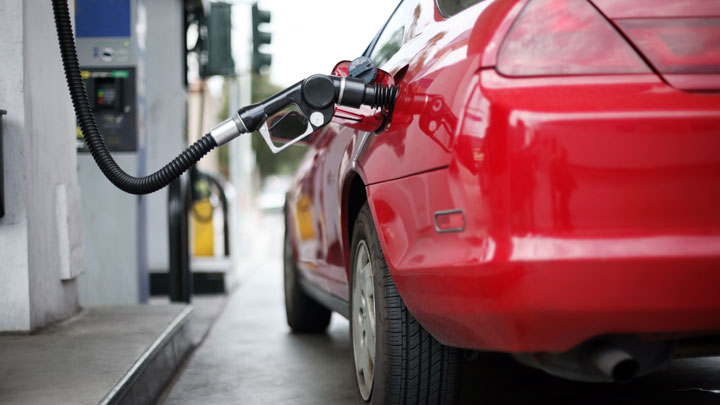
If your PCV valve remains closed, it will cause a rich mixture of air and fuel in your combustion cylinders. This means there is more fuel than air in the cylinders.
Since more fuel is being consumed, it lowers your fuel economy and forces you to pay more money for gas. On top of that, your engine will produce increased toxic gases which may cause you to fail your next emissions test.
#5 – Sludge
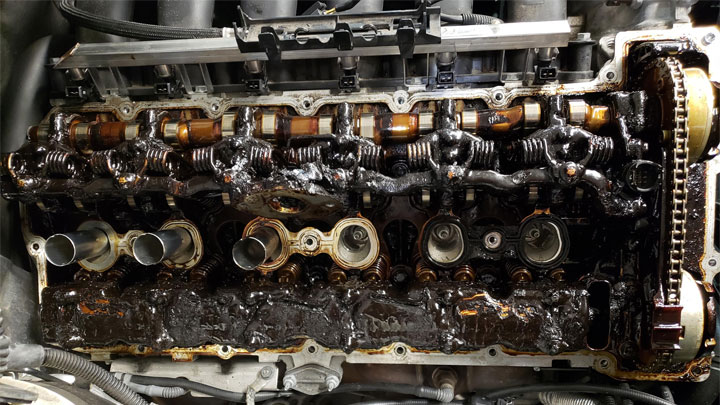
When those toxic gases from the combustion start leaking out into the middle of the cylinder wall and piston, they will mix with the oil in the engine. When oil and exhaust gases merge, it creates a sludge residue.
This sludge will continue to build up until it ultimately damages your engine. You won’t notice the sludge until you inspect your engine oil and notice the sludge for yourself. You may even here ticking from your engine due to noisy tappets/lifters because of engine sludge.
PCV Valve Replacement Cost
Best places to order parts? See: 19 Best Online Auto Parts Stores
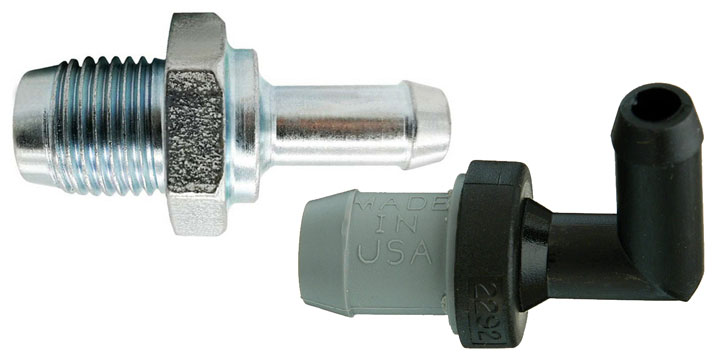
You will be happy to know that replacing a PCV valve will not cost you too much money. The average replacement cost for a PCV valve is anywhere from $35 to $75. The part itself only costs around $10 or $15.
If you know how to replace the valve yourself, you could cut out the labor costs altogether and only pay $10 or $15 for the replacement. Otherwise, an auto mechanic will charge you between $25 and $60 to perform the replacement job for you.
This isn’t a whole lot of money as far as auto jobs go, but it is certainly more than the cost of the PCV valve part. If you are not skilled in the field of auto mechanics, then you should pay the labor costs and have a professional do the job properly for you.
How a PCV Valve Works
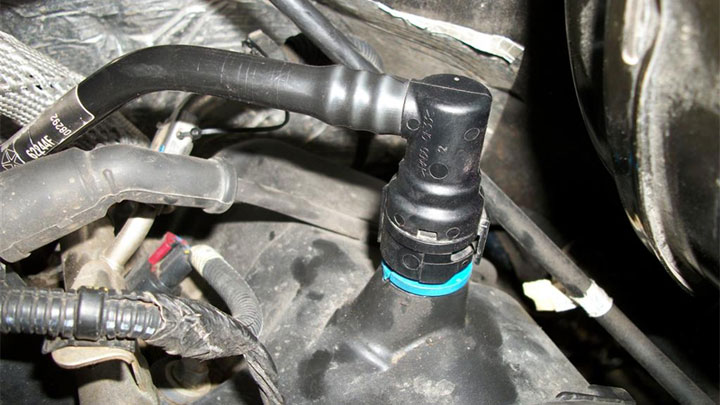
The PCV valve is the component that prevents these toxic gases from staying in your engine block. The engine valve cover is where the PCV valve is located. There is a vacuum hose which links the intake manifold and PCV valve together.
As the exhaust gases enter the engine block, the PCV valve contains a spring-loaded plunger which redirects the flow of the gases out of the crankcase and into the intake manifold.
From there, the gases flow back into the combustion cylinders of the engine where they get ignited again during the next combustion process.
- Replace the Engine or Replace the Car? (11 Factors to Consider) - Apr 11, 2024
- Plastic Piece Dragging Under Your Car? (What It Is and What To Do) - Mar 21, 2024
- Timing Belt vs Timing Chain (What’s the Difference?) - Feb 27, 2024

I can’t locate the PCV valve in my 2007 Tucson Diesel 😔
I’m not familiar with that engine, but this video on a 2013 Tucson diesel may help you locate it. https://www.youtube.com/watch?v=gOHwqSOFmOg
Hi I have a 2015 volvo v60 and had engine light on, P0171 code, system too lean. After dealership inspection, they said “intake resonator with PCV valve- found one way directional valve to have failed, recommend replacement replacement.” The price is $1036, is that reasonable? And the other auto shop told me just need $400, I am so confused.
$1036 sounds way high for just a PCV valve. Did the quote give you a break down of each part you’d need and the number of labor hours?
Hi, I have a 2010 550i GT. It’s making a lot of smoke out of the exhaust when I rev or put in reverse. Lots of smoke sometimes when I’m stopped at a light. Exhaust smells bad, it’s burning oil really fast. Does it sound like a bad PCV valve? Is there more than one PCV valve? Is there a possible other faulty valve or part?
No, it doesn’t sound like a bad PCV valve to me (though I wouldn’t necessarily rule it out, I suppose). I would do a leak down test to figure out where you’re losing oil from. I’m wondering if maybe the piston rings are worn, and extra oil is being burned that way.
Hi,
Anyone can tell me where is PCV Valve on 2018 Toyota Prius Two location. I got 110000 miles. Thanks
What will cost a 2016 q5 3.0t to replace pcv valve ? The dealer it scary place to go to 🙁
Thank you
Not sure about a Q5 specifically, but PCV valves are usually pretty cheap and straightforward to replace. I would call a couple of local independent shops for a good estimate on that.
Hi I have 2018 toyota prius with 106,000 miles. I should change pcv valve but hard to find it. Any suggestions or websites to check. Thanks
Have you tried any of your local auto parts stores? They should be able to get you one pretty easily.
Hi jack, my Subaru dealer is recommending to change my pcv valve on my 2019 forester s , charge for it $299.00 , does that sound fair ? The part is like $20 bucks.
Labor is expensive, especially at a dealership. That sounds about right.
How handy are you? A PCV valve on a Subaru isn’t that hard to replace. Give it a quick google to see how involved the job is and if you think you can tackle it.
I have a 2010 Jeep Sahara wrangler 2.8 crd 2 door .Where on the engine can I find the PCV valve .
I need to replace it but can’t find .I looked at a lot of videos ,googled etc but for some reason can’t find any info about this pcv valve for my model Jeep .
Please assist ,thx Tian
If you can pick up a Haynes or Chilton repair manual, those books should have it labeled pretty clearly. You could also check the factory service manual for the exact location. Most manufacturers have this type of technical data available on their website. Do a search for something like “Jeep factory service manual”.
It cost me 2300 dollars to replace pcv valve for 2009 Porsche cyene
It is acceptable?
Wow. That sounds really high, but having never worked on luxury German cars I can’t say for sure. I would get a second opinion.
It just costed me $5,542 to replace pcv valve cover, both disa valves, 2 vanos solenoid, an oil change, and 2 other parts that are part of the vanos system. They were $337 of the $5,542.
High?? Lol
I must have been!
Oh. On a 2011 BMW 528i.
Yikes. Where did the majority of that bill come from?
That is because on BMWs, later models anyway, like yours and mine, the PC Valve is molded into the valve cover rather than being a separate part. So, we have to pay not only for a whole new valve cover (~$500) but also the several hours of labor involved in swapping out a valve cover. This is particularly irksome in my case, because a year or two ago I paid the same labor to replace the valve cover gasket on my by 2013 535 ix. There is an after-market, 3rd party PCV valve that can be installed by chiseling out the old one and glueing in the 3rd party one. But I don’t trust it.
How likely is the pcv valve bad after 15000 miles and about two years since a new car purchase?
Possible, but pretty unlikely. What are your symptoms?
I got a quote of $480 to replace the pcv valve & hose on a 2012 Subaru Forester, this seems really high after reading this article no?
That does seem a bit high unless this quote was from a dealership. Are they replacing any other components?
I have s 2005 zafira diesel cdti and I’ve got build up of soot in throttle body and sludge when took couple pipes off and oil in pipes and blowing bit blue smoke thanks
Do you need to change your oil and flush the engine after replacing p.c.v vavle .
Derek
It’s a good idea to check the PCV valve and replace if needed at every oil change, though it doesn’t matter if you change the oil or replace the valve first. It’s not necessary to flush the engine after installing a new PCV valve unless you just want to get rid of the build-up in other areas of your engine.